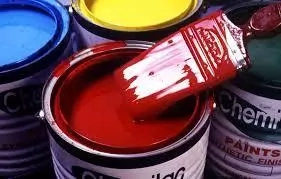Local demand for paint may reach N135. 80bn in 2023
April 5, 2023794 views0 comments
By Saby Elemba, in Owerri
-
Manufacturers decry cost of imported raw materials
The current high demand for paint products in Nigeria has led to the projection being made that paint consumption may hit over N135. 80 billion by the year 2025, sources from the Paint Manufacturers Association (PMA), a sectoral group of the Manufacturers Association of Nigeria (MAN) have said.
This increase in consumption which is expected to hit N135. 80 by 2025 is being attributed to the prevailing positive indicators in the country.
The paint products include decorative paints which are put at about 60 percent consumption rate, industrial paints have a share of about 20 percent consumption rate, refinishing paint has about 10 percent, while wood finishing for furniture makers, automotive paints have five percent consumption each of the market share.

This positive information notwithstanding, the Paint Manufacturers Association (PMA) is lamenting the high cost of raw materials attributable to the scarcity of foreign exchange. This, they say, has made it difficult for paint markers to procure raw material. It stated that over 85 percent of the raw materials required for paint production is imported.
Abimbolu S Babatunde, chairman, Paint Makers Association, said the group has been bedevilled by so many challenges since the Covid-19 pandemic and that has slowed the manufacturers’ efforts to scale up their production.
He informed that the effects of Covid-19 pandemic had led to the shutting down of many factories belonging to members of PMA, adding that they have since been struggling to cope.
He also Informed that the scarcity of foreign exchange has worsened the situation, leading also to the high prices of the imported raw materials and the high prices of the finished products in the market.
“These have also made the business environment unfavourable and unattractive to investors. With these challenges, our products have remained uncompetitive in the midst of the African single market,” he said.
